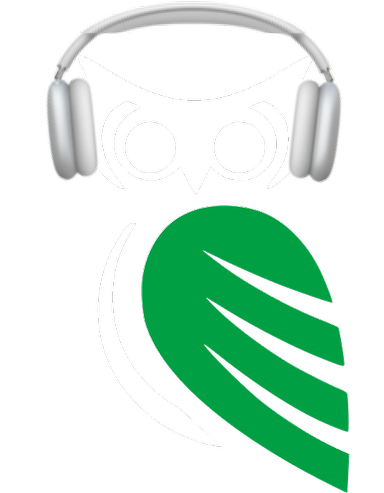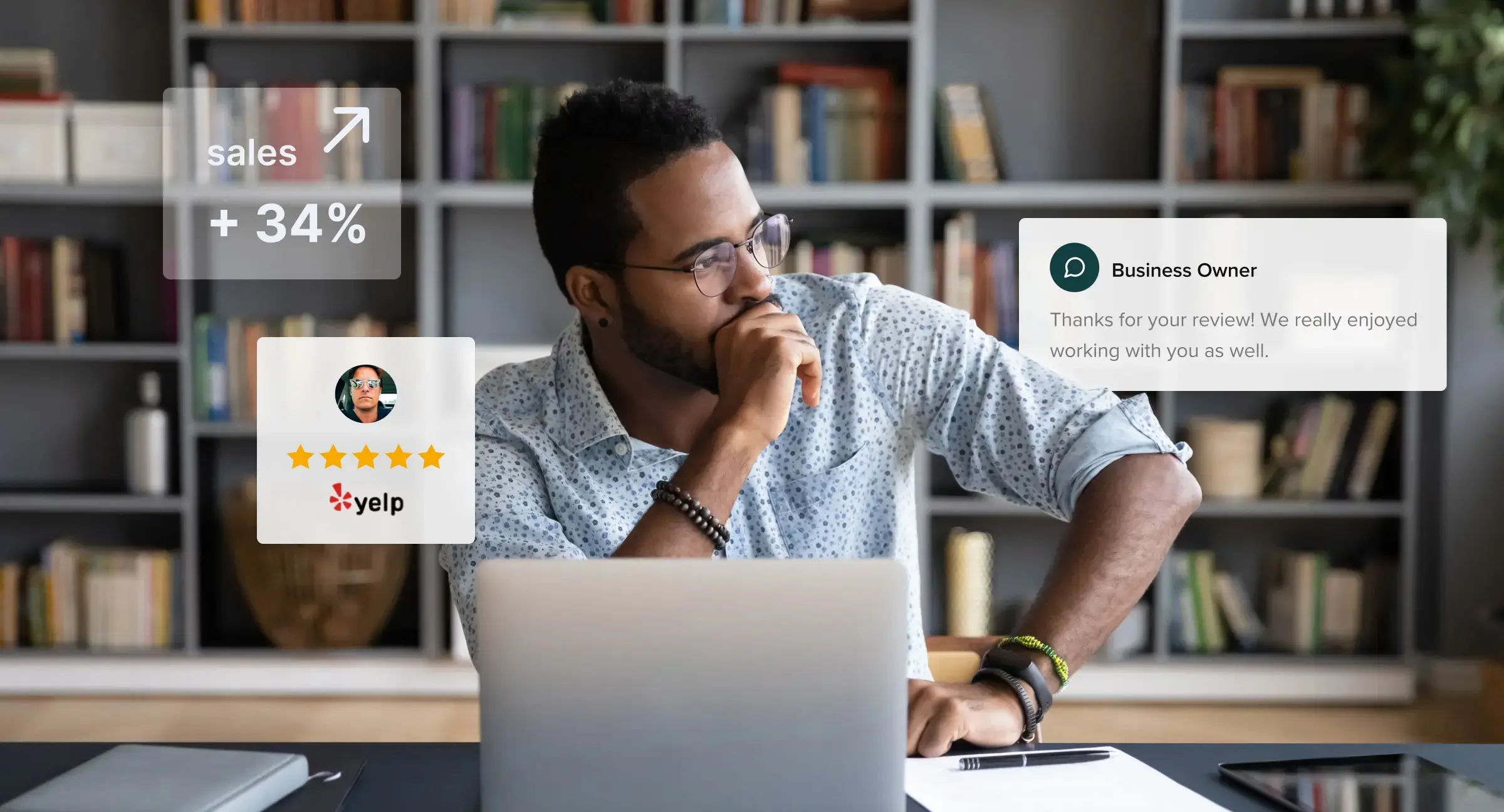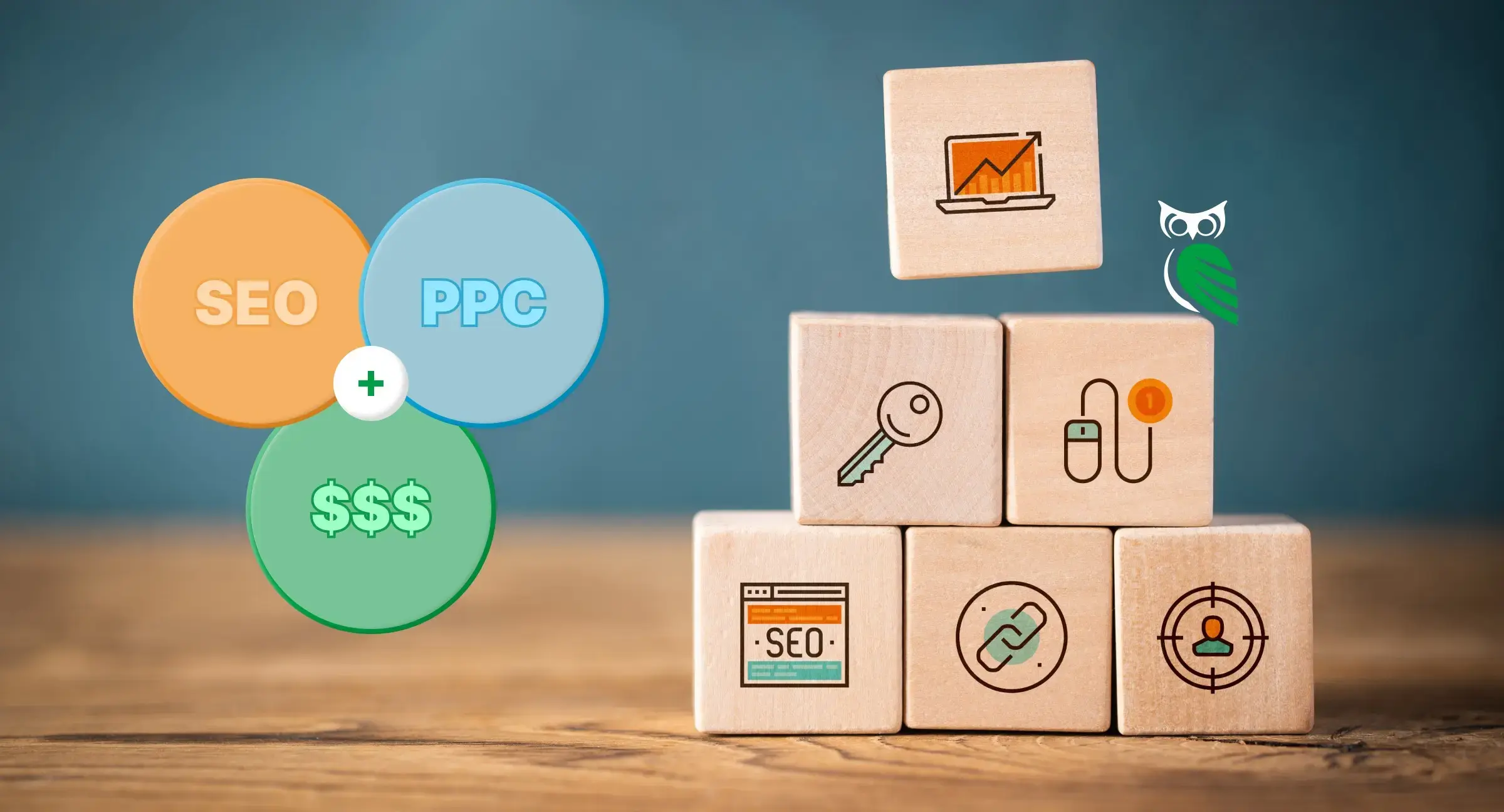It's Time to Get WISE.
Patrick Dillon
CEO
Matthew Hinkle
Director of Accounts
Kristina Brenner
Account Executive
Apply Today
Please fill out the information below. Someone on our team will reach out in 3-5 business days to schedule a call if we see a good fit.
Book Patrick Dillon
Thanks for your interest in booking WISE CEO Patrick Dillon on your podcast! Please complete the form below, and a team member will contact you shortly.

Remove Negative Reviews.
Paid Vs. Organic Search: Which is Right For Your Accounting Firm?

by WISE Digital Partners
March 28, 2025
- 5 min read

Seeing your accounting firm triumphantly displayed at the top of Google search results feels awesome. Getting there, though, is a journey that requires investing in paid and organic search—or a combination of both. For almost any business, the goal should be to take up as much real estate as possible on a Search Engine Result Page (or SERP).
If these are fuzzy concepts, keep reading. We’ll break down the benefits and limitations of paid and organic search to help you decide which is right for your accounting firm.
Paid Search
Paid search (or pay-per-click advertising – PPC) is exactly what it sounds like: paying platforms like Google and Microsoft Bing to have your accounting firm appear prominently in search results. You probably see paid search results every day. They're the results marked with a small “Ad” or “Sponsored” label to distinguish them from organic results.
Taking the paid search route offers accounting firms immediate visibility, targeted reach, and valuable performance data. But as we’ll explain, it also has limitations.

The Benefits of Paid Search
The obvious benefit of paid search is that your ads appear at the top of search results.
Say, for example, a local user types “accountant near me” or “tax prep services in [city]” into Google. If you paid for placement, you’d appear above any organic results at the top of the list. Paid search also gives you:
- Targeted reach: Instead of broadcasting your ad to everyone on the internet, paid search targets specific demographics and locations. That means your ads are more likely to be seen by qualified prospects who are actively searching for your products or services.
- Immediate visibility: It can take 6-12 months to start seeing the effects of organic search. On the other hand, paid search can pull in leads in a matter of days or weeks.
- Robust data: Paid search platforms often give you granular data about how your paid media campaigns are performing—which keywords made your ads visible to searchers, which ad version performs best, and how much you’re paying for each conversion. That level of insight isn’t always available with organic search.
- Capture high-intent leads: Accounting firms have peak seasons, particularly around tax deadlines, which means search volume around certain terms can skyrocket. Paid search allows your accounting firm to capture these high-intent leads.
- Testing new offerings: If you don’t know whether or not a new product, service, market, or promotion will stick, running Google ads can generate the real-world data and insights you need to make an informed decision.
The Limitations of Paid Search
- Cost: It’s not called paid search for nothing, and costs can add up quickly—especially in competitive markets where multiple competitors bid on the same keywords.
- It’s temporary: Unlike organic traffic that continues flowing long after you post SEO-rich content on your website, paid search traffic dries up the minute you stop funding campaigns.
- Ad blindness: Many users have grown so accustomed to seeing paid ads that they actually stop seeing them. Unfortunately, some potential customers will blow past your paid listings to the organic results without giving your ad a second thought.
- Diminishing returns: There will inevitably come a time when paid search hits a ceiling. In other words, valuable clicks get used up, and additional spending only brings in less qualified leads at a higher cost.
At WISE, we really encourage clients to focus on the potential ROI behind any marketing effort. To that end, in accounting, we’ve managed millions of dollars in Google ads across dozens of clients nationwide—from national campaigns to single markets/cities.
We typically deliver a return of 5- 10X or more on your Google ads spend (or higher with larger budgets). Results generally take 3-6 months to fully optimize, and conversion rates will reach +5% (the industry average is approx. 5.1%) initially and +12% at peak performance.
Organic Search
Organic search results are the non-paid listings that appear in search engine results based on their relevance to a user's query. Unlike paid search, organic rankings can't be purchased—they must be earned by creating valuable content that meets Google's quality standards.
To meet those standards, you must:
- Ensure your website is optimized for relevant search terms and topics
- Create content that fulfills users’ information needs and demonstrates experience, expertise, authoritativeness, and trustworthiness (Google’s E-E-A-T criteria)
- Audit your website to ensure it is fast, mobile-friendly, secure, and ADA-compliant
- Regularly update your website with fresh content
At this point, you might be saying, “This sounds like a lot of work. I think I’ll take the paid search route.” We wish it were that simple.
Unfortunately, relying solely on paid search is equivalent to renting visibility—not owning it. The moment you stop paying, your visibility completely disappears.
The Benefits of Organic Search
Organic search offers numerous benefits over paid media:
- Consumers trust it: Your content's high ranking in organic search results is earned, not paid for.
- It has a stronger long-term ROI: Organic search may require more heavy lifting on the front end. The upside is that these long-term efforts pay off over time, allowing you to generate leads for years without spending on per-click costs.
- It provides broader keyword visibility: Organic search ranking allows you to appear in search results without having to pay for them.
- It differentiates you from competitors: Investing in an SEO-rich website and quality content will differentiate your accounting firm from competitors who rely solely on paid ads, positioning you as an authoritative resource in your market.
- It captures valuable long-tail searches: Organic search helps you appear in specific queries like "best tax deductions for small businesses." These long-tail keywords typically come from users with clear intent who are further down the funnel.
- It can increase visibility in AI-driven searches: Language models like ChatGPT can now pull real-time information from search engines like Bing. The more visible and authoritative your content is, the more likely it is to be referenced in user queries.
The Limitations of Organic Search
While organic search offers significant advantages, it's important to understand its constraints:
- It takes time: Building organic visibility is a long-term game that can take anywhere from 6-12 months before you see meaningful results. Unfortunately, many business owners never see the full payoff because they prematurely abandon their efforts.
- It requires expertise: Effective SEO requires specialized knowledge that most accountants and freelancers simply don't have.
- It demands ongoing commitment: Search engines reward a steady stream of fresh, authoritative content. Unfortunately, many accountants lack the time to generate a steady flow of content while managing their practice.
The Bottom Line: Success Means Taking a Hybrid Approach
As you can see, the journey to the top of Google search results isn’t exactly linear.
Relying solely on paid media will max out your budget, exhaust your pool of prospects, and stop working the minute you pull the plug on your campaigns. On the other hand, ignoring paid media altogether means missing out on immediate leads.
The same applies to organic search. Focusing solely on organic growth means waiting 6-12 months for your efforts to gain traction. Neglecting organic search means missed opportunities to build authority, establish trust, and create sustainable lead generation.
Long story short? The most successful accounting firms use a hybrid approach, investing in paid and organic search.
At WISE Digital Partners, we help accounting firms execute this balanced strategy—managing targeted paid campaigns that drive immediate leads while simultaneously creating the SEO foundation that ensures long-term visibility and authority.
Accelerate Your Growth the WISE Way
If you've outgrown your current marketing approach and want to gain wider visibility, you need a partner with a proven track record. Someone who not only understands paid and organic search but also understands your industry-specific challenges. Our team has helped many accounting firms break through and achieve sustainable growth in their digital presence. If you're ready to take the next step, contact us!
Share
Subscribe to WISE Insights
Stay ahead of the digital marketing curve and never miss a lucrative trend or insightful tidbit – subscribe to our WISE blog!
Keep Reading
Build. Grow. Soar.
Get WISE about digital marketing with advanced services, industry experts, and cutting-edge tools designed for long-term, sustainable growth.









